Mass Senate pushes for free community college, with price tag of $170 million annually
|
Published: 01-14-2024 10:00 AM
Modified: 01-14-2024 4:43 PM |
BOSTON — Senate President Karen Spilka advises to “keep your eyes peeled” for free community college funding in the Senate’s version of the fiscal year 2025 budget.
Making community college free for every Massachusetts resident could cost the state about $170 million annually, according to a new report by Boston Consulting Group on behalf of the Massachusetts Association of Community Colleges. The report was rolled out to reporters last week alongside Spilka, Senate Ways and Means Chair Michael Rodrigues and Higher Education Committee Chair Sen. Jo Comerford.
The Senate president has said that she hopes to make the state’s 15 community colleges free for all by the fall of 2024, but her goal may be affected by the state’s changing fiscal environment. The fiscal year 2024 state budget already deployed $20 million to cover any unmet community college costs for students 25 and older without a college degree.
Gov. Maura Healey announced earlier this month that she was making budget cuts after six consecutive months of tax collections coming in below projections.
Budget writers will also have less wiggle room in their next budget, after lawmakers and administration officials estimated the state would bring in less general revenue in fiscal year 2025 than they had originally built the fiscal year 2024 budget on.
Asked if the announcement of budget cuts and disappointing revenues would undermine Spilka’s plan, she replied, “Those of us who have been in the State House a long time, you realize all revenue is cyclical.”
“There are some times where it’s up and then sometimes when it’s down,” the former Ways and Means Committee chair continued. “We believe that, again, this is affordable. And we believe that this is a way to grow our state revenue to not only afford this, but many other programs and services that our residents want and deserve.”
Boston Consulting Group’s report suggests that the program could be funded through revenue from the 4% surtax on household income above $1 million, which voters passed in 2022 with revenue to be used exclusively for education and transportation initiatives.
Article continues after...
Yesterday's Most Read Articles
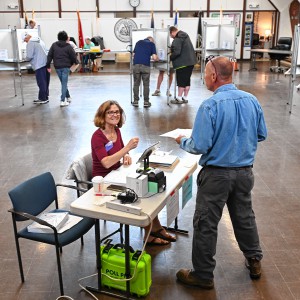 Political newcomer defeats Shores Ness for Deerfield Selectboard seat
Political newcomer defeats Shores Ness for Deerfield Selectboard seat
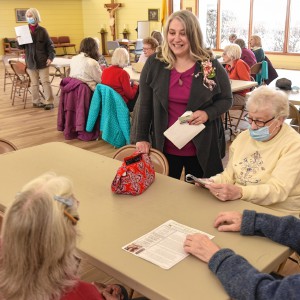 South County Senior Center opts not to renew church lease after rift over LGBTQ program
South County Senior Center opts not to renew church lease after rift over LGBTQ program
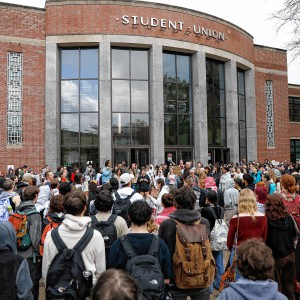 More than 130 arrested at pro-Palestinian protest at UMass
More than 130 arrested at pro-Palestinian protest at UMass
 As I See It: Between Israel and Palestine: Which side should we be on, and why?
As I See It: Between Israel and Palestine: Which side should we be on, and why?
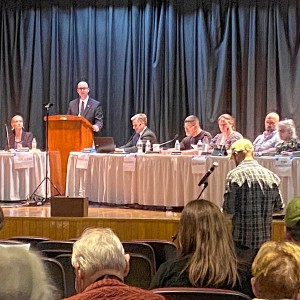 Moratoriums on large-scale solar, battery storage passed in Northfield
Moratoriums on large-scale solar, battery storage passed in Northfield
 Bridge of Flowers in Shelburne Falls to open on plant sale day, May 11
Bridge of Flowers in Shelburne Falls to open on plant sale day, May 11
The state spent $1 billion of that new funding this year, about half of which went to education programs. They’re anticipating spending $1.3 billion from the surtax in FY25, meaning the free community college initiative could take up about 26% of newly available education dollars, if budget writers decide to split the fund evenly between education and transportation spending.
Spilka, Comerford and community college presidents at last week’s press conference said universal free community college would help address the state’s workforce shortage, lift up low-income families and help young people get on their feet without the pressure of student debt.
“For 25 years, I have worked to enable the success of our students at the community college level and what ends up being the obstacle is not the academic work in most cases. It’s what the student is dealing with in their family lives, in their personal lives, whether they have food security issues, whether they have housing insecurity, whether they have child care, dependable child care, and the list goes on,” said James Vander Hooven, president of Mount Wachusett Community College. “This step that you are taking in this step that the Legislature is moving toward in the area of equity is going to be transformational.”
It was a similar argument that was made for Healey’s MassReconnect program, which made community college free for everyone older than 25 who did not previously have a college degree. That program cost the state $20 million in FY24, covering last-dollar costs that were not already paid for by federal or state financial aid.
Vander Hooven said Mount Wachusett Community College saw a 30% increase in students enrolling for the upcoming spring semester over last spring, which he attributed to MassReconnect.
Lawmakers and Healey also financed a new program in FY24 for free tuition for nursing students at community colleges across the state, amidst health care workforce shortages that have significantly impacted the industry and access to care.
Greenfield Community College President Michelle Schutt said MassReconnect and the nursing tuition program have led to a 15% increase in enrollment — turning around a 13-year decline.
“It has given so much hope to my community that simply was struggling and questioning how education fit into western Massachusetts,” Schutt said.
The Boston Consulting Group report compares financing models that lawmakers could consider to pay for free community college.
The group suggests a “preferred” model, which would provide more funding for low-income students than a “last-dollar” model like MassReconnect.
MassReconnect works through a commitment from the state that it will pay whatever financial aid doesn’t cover for tuition and books. Under the Boston Consulting Group’s recommended model, Pell-eligible students, who make up about 60% of the community college population, would receive about $75 million of the program’s total funding. This model provides more funding to Pell-eligible students than a “MassReconnect for all” model, which only provides 25% of funding to Pell-eligible students.
Another more extreme model would also cover living expenses for low-income students, and would cost the state $280 million.
Spilka called the Boston Consulting Group models a “menu” to choose from when considering a program for the Senate to take up.
“It’s my responsibility to ensure that whatever we do is both affordable and sustainable for the future. The last thing any of us want to do is to start a program and then have to backtrack on it in a few years,” Rodrigues said. “Budgets are all about priorities. And it is our priority to ensure that every citizen in the commonwealth of Massachusetts has the opportunity for free community college. It is affordable; it will be sustainable.”

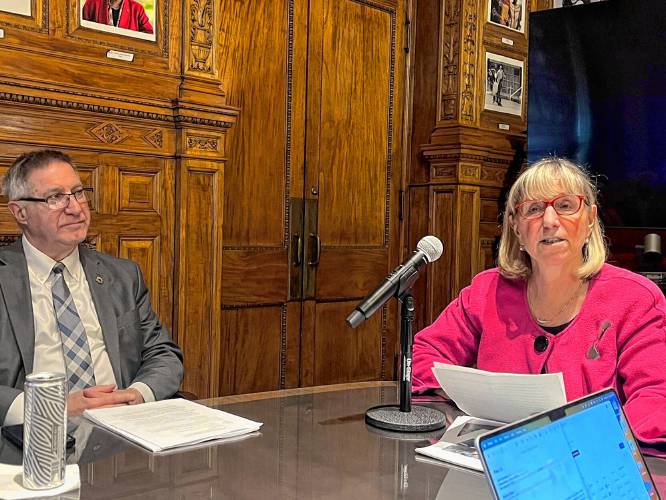
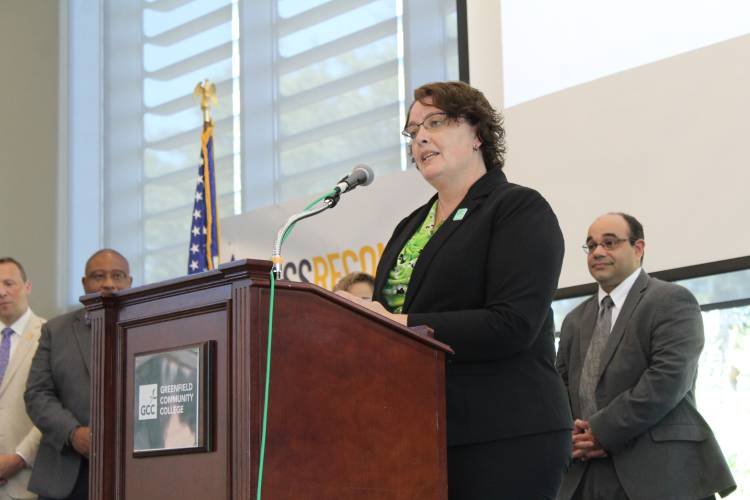
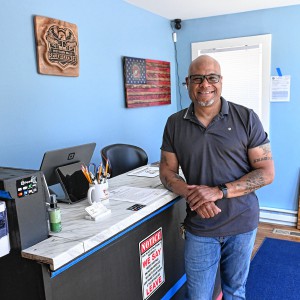 Retired police officer, veteran opens firearms training academy in Millers Falls
Retired police officer, veteran opens firearms training academy in Millers Falls No surprises in Wendell election
No surprises in Wendell election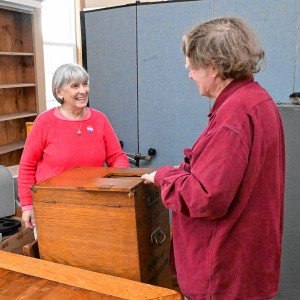 New Salem election ushers in new Selectboard member
New Salem election ushers in new Selectboard member
